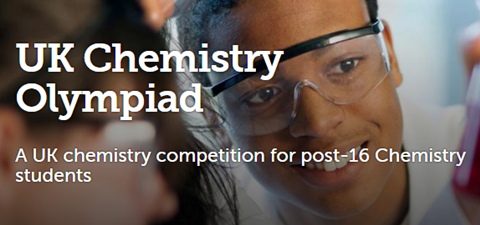Questions from annual national competition provide excellent teaching resources for AS- and A-level chemistry

The International Chemical Olympiad is an annual competition aimed at challenging the chemical knowledge and practical skills of the world's best post-16 chemistry students. It is also an opportunity for like-minded students to travel and meet their peers from around the world. The UK team of four sixthformers is selected following three rounds of tests run by the Royal Society of Chemistry (RSC) and open to all schools and colleges. The selection process is sponsored by INEOS.
Speaking at the ASE national meeting in Reading in January, Chas McCaw, one of the mentors of the UK team and chemistry teacher at Winchester College, pointed out that the Olympiad questions are also an invaluable teaching resource for AS- and A2-level chemistry. 'The questions provide a stimulating context to enthuse students because they are based on real, and often new, applications linked to AS and A2 concepts', he said. By way of example he alluded to questions on the space shuttle launch and the reaction between hydrogen and oxygen, and another on the combining properties of the elements, which included Robert Boyle's original experiments.
The Olympiad questions, he added, can also provide university training for upper sixthformers. University interviews often include problems on unfamiliar contexts and spectral problems to discriminate between candidates, both of which students practice as they go through the selection rounds. NMR spectra of nuclei other than hydrogen, eg 13C and 19F,are covered in selection questions, for example, as is symmetry. The round one papers are particularly useful because they often require the manipulation of equations, thus emphasising the importance of mathematics. Problems on synthesis, McCaw pointed out, tend to focus on real syntheses of well-known molecules, such as Agent Orange and Viagra, and students get the opportunity to revise functional group interconversions and the application of mechanistic principles.
McCaw encouraged his audience to go to the Olympaid website where they would find all past papers and mark schemes for different selection rounds.






No comments yet